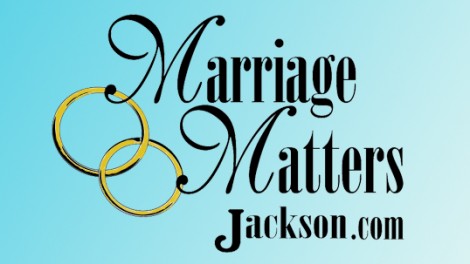Date-night relationship classes for couples on money
The Issue: How to cover finances in a series of relationship classes – but in a way that’s fun enough to feel like a date.
 Who: Kylee Miller is a project manager at Marriage Matters Jackson, in Jackson, Michigan. The relationship education organization is housed at the United Way and was originally supported by a federal Healthy Marriages grant. It aims to strengthen marriages and families and decrease divorce.
Who: Kylee Miller is a project manager at Marriage Matters Jackson, in Jackson, Michigan. The relationship education organization is housed at the United Way and was originally supported by a federal Healthy Marriages grant. It aims to strengthen marriages and families and decrease divorce.
What: Marriage Matters Jackson runs a variety of relationship education programs. Its major offering, “Five Great Dates,” is a five-week series of relationship classes for couples who are seriously dating or engaged.
How:
- Marriage Matters Jackson holds its series of couples’ relationship classes weekly at different date-like locations throughout the city. “We go to venues where they can have their own table. We go to a different place each week so it really feels like you’re going out on dates,” says Miller.
- Each premarital class is two hours. The evening begins with an hour-long presentation by a speaker on a topic of importance to premarital couples. This is followed by a dessert or an appetizer break. Couples then have another hour or so by themselves to talk and work together on an activity.
- The goal of the relationship classes is make them seem more like date nights than workshops. By combining food, locations like restaurants, and a more interactive format, they are designed to be fun and upbeat. Attendees should not feel that they’re going to just another classroom.
- Couples pay $75 for all five relationship classes.
- The relationship classes cover topics like communication, goal setting, and finances. Money Habitudes cards are the foundation of the money class.
- Marriage Matters Jackson promotes its series of relationship classes in a variety of ways. One important way is to let people experience shorter, standalone workshops (including one using Money Habitudes) that are fun and non-threatening. “Getting attendees to show up has not always been easy, but once we proved to people that we’re not scary, we’re not going to make them do something that’s uncomfortable, they come to associate our name with something that’s safe, fun and entertaining,” says Miller.
- In the money class, the format is the same as the other relationship classes: an hour-long presentation on money and finances, a break for food, and then couples do the Money Habitudes activity together. Couples go over their results and read the interpretation cards together to understand their money personalities.
- “The goal of that night isn’t to make a budget. It’s to get the ball rolling so they they’re able to communicate better and learn more about each other,” says Miller.
- Some organizations that use Money Habitudes cards in classes want to encourage large, group discussion. However, Miller says that their relationship classes forego a group conversation in favor of couples learning to talk about money on their own.
- In many respects, the class is proactive. It helps couples establish a pattern and practice of having good conversations about money.
Why:
- “Finances are not easy for couples to talk about, but a simple card game makes it not so scary. And, from a facilitator’s standpoint, we don’t have to stand up in front of people and tell them, ‘You’re doing this wrong!’ or ‘You need to do this!’ The participants can come to those conclusions on their own. We want to keep things as light and fun as possible and this card game does that. That’s the beauty of the Money Habitudes cards.”
- “When you talk about finances, especially with the engaged couples who are in that la-la phase of venues, dresses and a wedding cake, it’s hard to bring up serious conversations about what the future is going to be like. What’s really nice about the Money Habitudes cards there is that it’s easy and it feels like a game, but you can have a conversation – and a serious conversation – about what your future is going to look like.”
 Who: Kylee Miller is a project manager at Marriage Matters Jackson, in Jackson, Michigan. The relationship education organization is housed at the United Way and was originally supported by a federal Healthy Marriages grant. It aims to strengthen marriages and families and decrease divorce.
Who: Kylee Miller is a project manager at Marriage Matters Jackson, in Jackson, Michigan. The relationship education organization is housed at the United Way and was originally supported by a federal Healthy Marriages grant. It aims to strengthen marriages and families and decrease divorce.